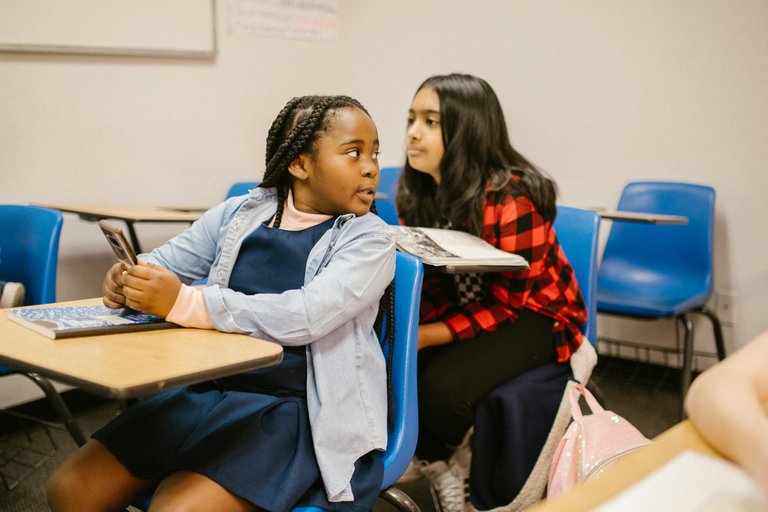Not too long ago I was involved in teaching a group of teenagers during summer school. They were on holiday and their parents did not want them to stay at home all day as they would only cause nuisance. So they tried to kill two birds with one stone by using the summer school as a means to educate their wards and also to get them out of the house for a while.
On a very good afternoon, I entered one of the classes to teach the students as usual only to be met with a wall of silence. I entered the class absentminded and was expecting their salutations to get me back in line. But, on this day, what got me back to reality wasn't their greetings, it was their silence. That was when I looked up to see all of them looking at something with keen interest.
When I was in secondary school, we weren't allowed to own a phone. But, later, the school rule was relaxed to allow boarding house students to own one so as to communicate with their parents. However, we must keep it in the hostel whenever we are going to class.
Then, one of my classmates came to school with a phone that had the game Bounce and one other football game with tiny players where the Brazil and Argentina teams were so good and Nigeria was piss-poor. After light out - which was 10pm - I and a couple of guys would queue to play this game on the phone.
At some point we became so addicted to the game that it started affecting our classes. We'd play games all night and struggle with sleep throughout the day. At the end of the term, my result was reflective of the amount of time I wasted playing games and missing classes. It was a harsh lesson to learn at such a young age.
The overriding feeling of pity I felt for myself when I saw my result was what overtook me when I entered that class and no one even noticed. It was when I moved over that I realized that the engrossing thing the teens were doing was watching a video on TikTok. To make it worse, they were watching what wasn't meant for their age.
Without doubt, I took the phone away from them and did my best to teach them. Unfortunately, that was one of the worst classes I ever taught. The students were not listening nor concentrating. The few times they asked questions, it was centered around how they will get the phone back as soon as possible. When it was time, I left the class in disappointment. But, I understand, I was once in their shoes and made the same mistakes.
The importance of using phones in the classroom cannot be undermined. With it, students have access to timely information and educational resources. Also, tools like calendars, notepads and reminders on the phone can help students to be more organized. But, the disadvantages have as much impact as the advantages.
Asides the fact that usage of phones in classrooms leads to decreased attention and ultimately poor grades, ringing phones makes learning difficult. Also, at a time when some students are getting smarter in the act of cheating, having access to phones will only make cheating easier.
Despite the negatives, considering the direction the world is headed, access to phones during classes may be the way to go - especially in higher institutions. However, we have to find a middle ground, a balance where the positives are maximized and the negatives are reduced to the barest minimum. One way to do that is to educate students on digital and media literacy.
Though some belligerent students will still step out of line, having clear policies about what to do and what to avoid with phones in classes, regularly telling students the mode their phones should be put for a particular class, and other timely instructions will go a long way to making the use of phones in classes less disrupting than it should be. Continuous education on digital literacy should yield a good result. Afterall, that's one of the things we should learn in school.
